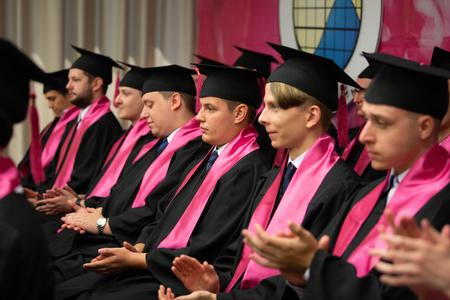In January 2022, The Slovak Spectator published its Business Focus on education. Here is an overview of stories from the focus issue:
University reform does not go far enough, employers warn
Draft legislation aimed at overhauling the university system in Slovakia will do little to solve long-standing problems with higher education failing to produce graduates fit for the needs of the country’s labour market, employers have warned. For years, businesses have complained that many students graduate from universities without the skills to meet the needs of the labour market.
Slovak universities are losing students
The halls and classrooms of Slovak universities are now emptier than they were 10 years ago. The coronavirus is not to blame in this case. Universities are losing students and the data they provided for the Largest in Business ranking of The Slovak Spectator shows that today, tens of thousands fewer students are studying at Slovak universities than a decade ago.
Survey: Most schools in Slovakia fail to properly prepare their students for working life
“I don't think my schools helped me much to prepare for a working life,” said Silvia Kováčová, who graduated from a graphic design programme in 2020. “If I wasn’t searching for opportunities myself, it would be hard to find a job in my field of study.”
The opinion that schools do not do much to help their graduates find a job is shared by 41 percent of the public university student respondents of the “Quarter to Quality Education” survey, carried out by the Slovak Accreditation Agency for Higher Education (SAAHE) between late April and late May 2021.
Dual education helps companies achieve top marks
Dual education is nothing new in Slovakia. Tomáš Baťa, a Czech entrepreneur and founder of the Bata shoe company, pursued this form of education in former Czechoslovakia. However, the communist regime later scrapped this type of scheme, so when companies joined the education process to help schools improve the labour force by helping students obtain the necessary qualifications and expertise, they had to start from scratch.
Pandemic brings down barriers but also prices in language teaching
Pushed out of their comfort zone by the pandemic, language schools have sought new forms of operation and interaction with their students. A solely online education, once considered unimaginable, has brought many advantages. For one, language schools saw their market broaden beyond previous location-based limits. They are also no longer limited by the number of classrooms. At the same time, online teaching has put more pressure on schools to lower their prices for language courses, even though they have yet to catch up with their pre-pandemic revenues.
International schools welcome both expats and Slovaks
Who can study at international private schools, what conditions do applicants need to meet, and what is the typical graduate profile of these schools? The Slovak Spectator put together some answers to questions related to international schools.








